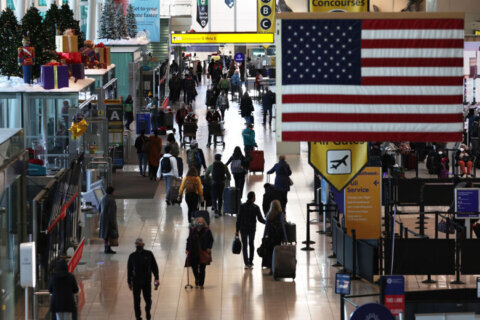Prosecutors in Baltimore have joined defense attorneys to ask a judge for certain items to be retested for DNA in the murder case against Adnan Syed.
Syed was convicted in 2000 of killing his ex-girlfriend Hae Min Lee and the brutal crime was brought to national attention by the hit “Serial” podcast, which sowed doubt in his guilt and poked holes in much of the investigation.
Lee was last seen on Jan, 13, 1999 at Woodlawn High School in Baltimore County, Maryland. She was found less than a month later in a shallow grave in Leakin Park. Her cause of death was strangulation.
Thursday’s motion requests a judge order the testing for what’s called “touch DNA” — which is DNA that is left behind from skin cells when a person touches or comes into contact with an item — like Lee’s clothes, shoes and hairs found around her body.
The state maintains that Syed struggled with Lee before he killed her.
And Syed’s attorney, Erica Suter, who is also director of the University of Baltimore’s Innocence Project Clinic, argued in the motion that the cause of death and disposal or remains “indicate that her assailant was in close physical contact with Ms. Lee at the time of her death and burial.”
If granted, the Baltimore City Police Department’s crime lab would release the requested evidence to a third party crime lab agreed upon by the defense and the state.
In the state’s response portion of the motion, prosecutors said the new testing would “assist greatly in evaluating Petitioner’s post-trial claims.”
State’s Attorney Marilyn J. Mosby said the idea of retesting evidence came after Suter contacted prosecutors about Maryland’s Juvenile Restoration Act, passed in April 2021, which qualifies people convicted as minors to ask for a different sentence if they’ve served at least 20 years in prison.
Response to Adnan Syed Filing pic.twitter.com/gN1SgaX1OE
— Baltimore City State’s Attorney Office (@BaltimoreSAO) March 10, 2022
“In the process of reviewing this case for a possible resentencing, it became clear that additional forensic testing [‘touch DNA’] — which was not available at the time of the original investigation and trial in this case — would be an appropriate avenue to pursue,” continued Mosby.
Maryland’s Court of Appeals denied a new trial to Syed In 2019, after a lower court ordered a retrial on the grounds that his original attorney didn’t contact an alibi witness and provided ineffective counsel. The court said there was not a significant possibility that the verdict would have been different if the witness testified.








